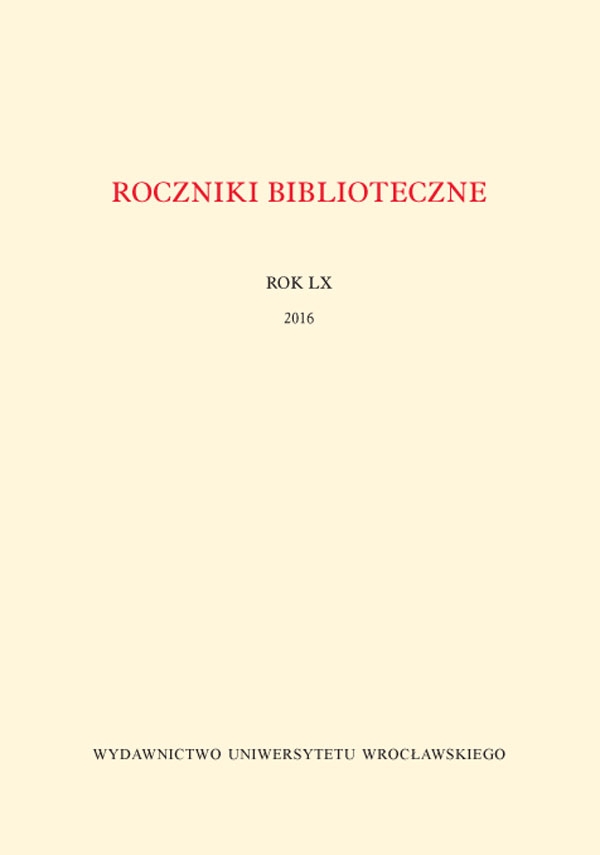

Artykuły i materiały

ACTA INTERREGNORUM — MANUSCRIPT COLLECTIONS OF MATERIALS DOCUMENTING THE HISTORY OF INTERREGNA IN THE POLISH-LITHUANIAN COMMONWEALTH IN THE 17TH AND 18TH CENTURIES
The most important types of handwritten books in Poland in the 17th–18th centuries were collections of public life materials documenting important political events. Such events in the Polish-Lithuanian Commonwealth included interregna, lasting from the death of a king to the election of his successor and marked by great intensification of political life. The collections documenting interregna, usually entitled Acta interregnorum, contained both official and private documents, including correspondence of state dignitaries, political writings, resolutions of senate councils, regional assemblies and the parliament as well as parliamentary diaries. Such collections were compiled for the interregna of 1632, 1696–1697 and 1733, with the collection for the 1632 interregnum appearing in two different editions. With the exception of the 1632 interregnum documents,edited by Jakub Sobieski, they appeared in versions differing in terms of the selection and arrangement of their contents, but the differences between the collections were not substantial and did not change the fundamental concepts of such works. The author has identified a total of 45 copies of interregnum files, with the most substantial being the files for the 1733 interregnum and the civil war of 1734–1736 which ensued as a result of the interregnum. The Acta interregnorum were disseminated through copying of the various compilations; they were also commissioned, that it compiled in an organised manner. Unfortunately, with the exception of the collection edited by Jakub Sobieski, we do not know their authors, but the most important role was probably played here by officials associated with the Primates of Poland — Archbishops of Gniezno, who, acting as “interreges”, were in charge of the state’s policy during the interregna.